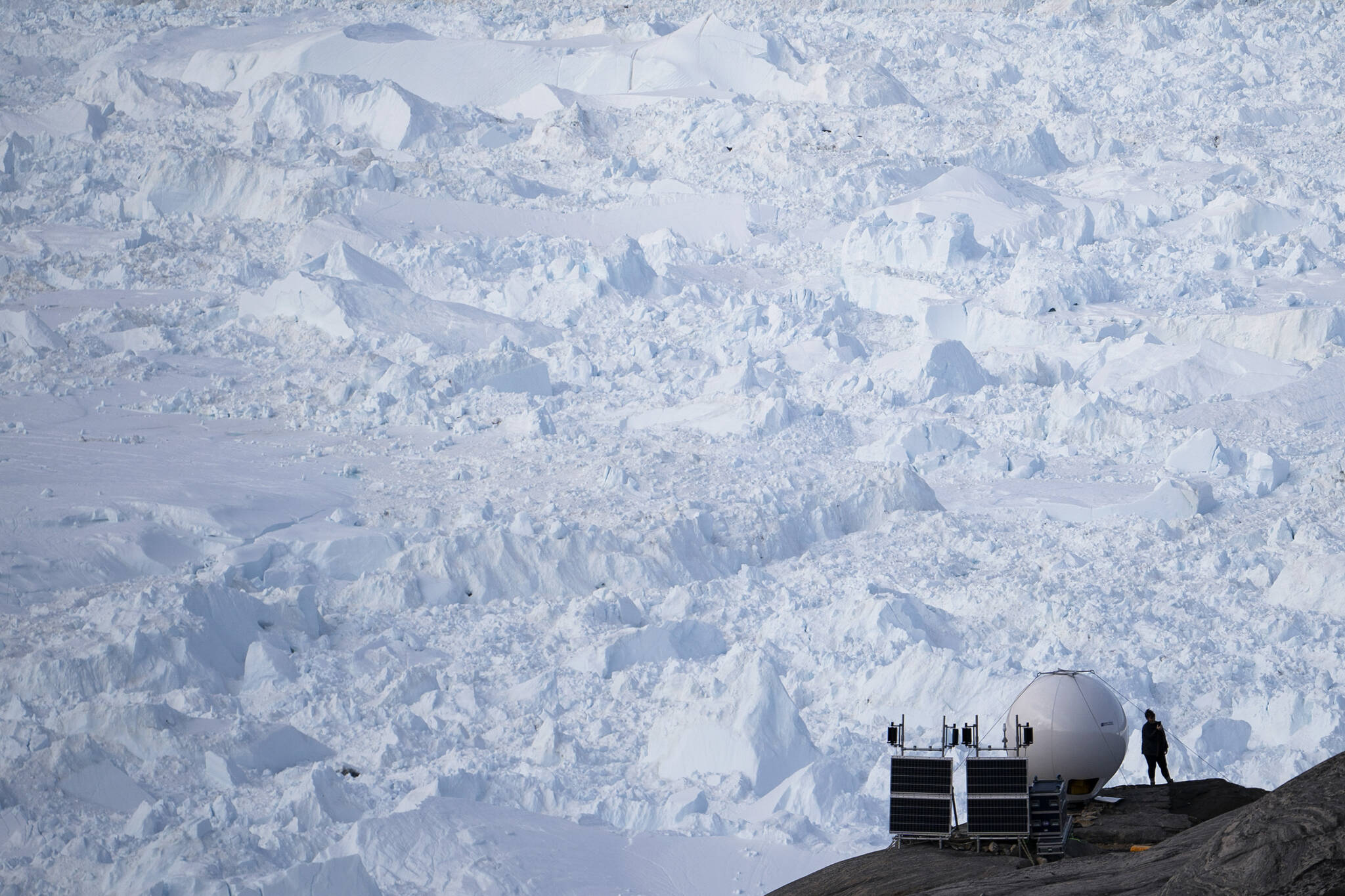The Department of Energy is investing in the Arctic with a series of programs to strengthen sustainable energy generation in rural Alaska communities, Energy Secretary Jennifer Granholm announced Wednesday during a virtual panel of federal officials. The series — known as ArcticX — is co-hosted by the department’s Office of Technology Transitions and the Arctic Energy Office.
Wednesday’s panel was the first of four webinars to be held on Arctic infrastructure and energy, Granholm said during the panel. The series aims to promote the creation and commercialization of sustainable energy projects in the Arctic.
“We know the Arctic is ground zero for climate change,” Granholm said via videoconference. “It’s very clear Alaska understands the urgency of the climate crisis better than anyone.”
The intent of the program is to help communities in the Arctic develop sustainable technologies to be self-sustaining by deploying technologies that can generate energy locally such as wind, tidal and geothermal power. The series was primarily focused on Alaska, but the Energy Department’s director of Office of Technology Transitions Vanessa Chan noted during the conference that Maine was also considered an Arctic state.
Deputy Secretary David Turk said during the conference DOE had an existing footprint in place in Alaska, and hoped to use the state as a living laboratory for innovative technologies.
“There’s a focus on commercialization of unique technologies for the Arctic and moving new technologies into the field,” Turk said.
Turk and other panelists — including a pre-recorded message from Interior Secretary Deb Haaland — emphasized the research and collaborations being done between local communities and the nation’s 17 national laboratories. Officials said Alaska’s harsh and variable weather created unique challenges that could be addressed through new technologies or improved existing technologies like advanced nuclear power.
[Young supports bill to end federal marijuana prohibition]
But officials said they didn’t want to wholly disrupt Alaska’s existing infrastructure, noting the jobs and revenue it creates, but to help transition the state to sustainable energy. Sally Benson with the White House Office of Science and Technology Policy said that Alaska’s liquid natural gas could play a role in America’s energy future.
“Alaska’s natural gas could be converted into hydrogen,” Benson said. “Hydrogen can be converted to ammonia which is being used as shipping fuel.”
Hydrogen can also be used in the development of fuel cells, Benson said.
Shipping companies are researching ammonia as shipping fuel, the BBC reported in 2020, but there are issues with storage and potential emissions of its own. Japanese car maker Toyota recently announced it was developing hydrogen-fueled cars, Reuters reported, and hopes to have 15 electric vehicle models by 2025.
The challenges posed by Alaska’s environment demanded innovation, Turk said, and pointed to projects in Alaska that were funded with DOE grants in collaboration with local partners. In 2019, DOE grants helped fund river-powered generators in the village of Igiugig, Turk said, and the Alaska Longline Fishermans Association has received a grant to research electrifying fishing vessels.
Linda Behnken, ALFA’s executive director, told the Empire in a phone interview the group spent the last six to eight years gathering data of fuel usage by the Sitka fishing fleet. ALFA had partnered in the past with the Pacific Northwest National Laboratory in Richmond, Washington, Behnken said, to research hybrid and zero-emission boats. Behnken said she wasn’t aware of the ArcticX program but was pleased to hear that alternative energy technologies were being funded.
“Batteries are a big part of the expense for a lot of fishermen,” Behnken said. “We are working with the labs to figure out the best systems.”
Dates for the remaining webinars haven’t been officially set, but are provisionally scheduled for mid-month in January, February and March or April. An in-person event is scheduled in Alaska for May 23, 2022, according to DOE, to be held in Anchorage.
• Contact reporter Peter Segall at psegall@juneauempire.com. Follow him on Twitter at @SegallJnuEmpire.

